Current News
/ArcaMax
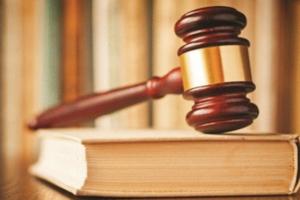
Former Maryland police sergeant sentenced for misconduct after having sex with teen in patrol car
BALTIMORE — A former sergeant in the Easton Police Department was sentenced Friday for two counts of misconduct in office after using department property in his sexual relationships with local teenagers.
Documents from the Talbot County Circuit Court say Jason Dyott, 38, exchanged sexually charged photos with a teenage girl from his work ...Read more
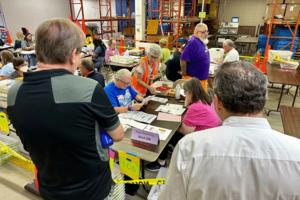
Recent safeguards should quash efforts to overturn election results, experts say
Recent sweeping changes to how the nation handles election results should prevent a repeat of the near-constitutional crisis four years ago.
For months, former President Donald Trump has been laying the groundwork to challenge the results, claiming that noncitizens are voting in droves and swing-state election officials are cheating. ...Read more
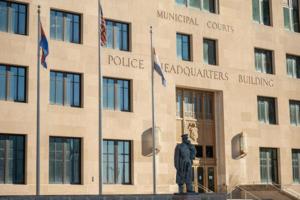
Black Kansas City police officer sues, alleges he faced discrimination in helicopter unit
KANSAS CITY, Mo. — A Black Kansas City police officer who has been with the department for 16 years has sued, alleging he faced discrimination during training in the helicopter unit.
The lawsuit was filed last week in Jackson County Circuit Court by De’Angelo Dotson.
His allegations of discrimination are the latest to face the department, ...Read more
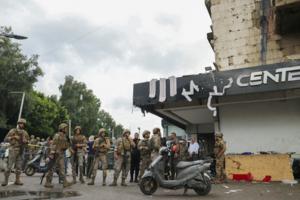
What war? For some in Beirut, blocking out the Israel-Hezbollah conflict is just survival
BEIRUT — Down a quiet street in one of Beirut's fancier neighborhoods, couples huddle over designer cocktails. The music of jazz trumpeter Enrico Rava washes over the dining room as solicitous waiters recite the evening's specials, their delivery unaffected by the thud of bombs falling on a neighborhood nearby.
Barely two miles away, Israeli...Read more

She was the first Pa. state senator to give birth while in office. Now she is grieving a pregnancy loss
PHILADELPHIA -- Just over a week ago, State Sen. Amanda Cappelletti learned that her nearly 10-week-old fetus did not have the electrical activity needed to become a heartbeat.
Cappelletti would need a dilation and evacuation procedure to prevent complications from allowing her nonviable pregnancy to end on its own. She had the abortion last ...Read more

Biden wants Medicaid doctors to talk to parents about firearms
WASHINGTON — The Biden administration wants more health care providers to talk to parents about keeping their kids safe around firearms, as data shows kids are increasingly dying by suicide, accidents and homicides involving guns.
The Centers for Medicare and Medicaid Services has given states the green light to allow Medicaid providers to ...Read more
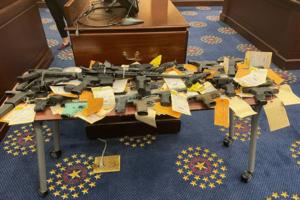
South Carolina man bought more than 100 guns, many ended up in the hands of felons, prosecutor says
A Midlands man and his sister are guilty of buying more than 100 guns and reselling them for a profit in other parts of the east coast, according to the U.S. Attorney’s Office.
A federal jury in Columbia convicted 27-year-old Sumter resident Kelsey Antonio McCallum of illegally trafficking firearms, the U.S. Attorney’s Office said in a news...Read more
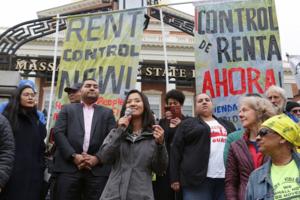
MassLandlords sues Boston, says city withheld public records to protect Mayor Michelle Wu, hide unlawful rent control lobbying
BOSTON — A trade association for Massachusetts landlords is in a legal battle with the City of Boston over public records it says the city withheld to hide unlawful lobbying from housing advocates that influenced the mayor’s stalled rent control plan.
Douglas Quattrochi, executive director of MassLandlords, Inc., which filed a lawsuit ...Read more
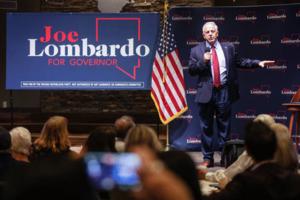
Nevada politicians can spend donor cash outside the campaign
LAS VEGAS — When Joe Lombardo gave $5,000 from his campaign account to a political action committee, the future governor thought he was helping pay for the statue of a fallen Las Vegas police officer.
The money was instead used by former Las Vegas councilwoman Michele Fiore to pay her rent. Fiore was recently convicted of wire fraud for ...Read more

Svalbard Global Seed Vault evokes epic imagery and controversy because of the symbolic value of seeds
Two-thirds of the world’s food comes today from just nine plants: sugar cane, maize (corn), rice, wheat, potatoes, soybeans, oil-palm fruit, sugar beet and cassava. In the past, farmers grew tens of thousands of crop varieties around the world. This biodiversity protected agriculture from crop losses caused by plant diseases and climate ...Read more

Osteoporosis, the silent disease, can shorten your life − here’s how to prevent fractures and keep bones healthy
Because there are typically no symptoms until the first fracture occurs, osteoporosis is considered a silent disease. Some call it a silent killer.
Osteoporosis is a bone disease characterized by decreased bone density and strength, leading to fragile, brittle bones that increase the risk of fractures, especially in the spine, hips ...Read more
I’m a Muslim immigrant and a psychiatrist living in Michigan – I haven’t decided how to vote yet
My three daughters and I arrived in Michigan from Pakistan in 2000.
Moving here was my choice, and I followed the legal process. Before the move, I had often been to the United States. I was familiar with the culture and spoke fluent English, so I thought I was prepared.
Resuming my career as a physician in the U.S. was ...Read more
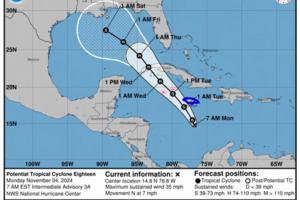
System that could grow into Hurricane Rafael headed toward Gulf of Mexico, NHC says
ORLANDO, Fla. — A growing system in the Caribbean could develop into Tropical Storm Rafael on Monday and intensify into a hurricane as it heads north toward the Gulf of Mexico, according to the National Hurricane Center.
As of the NHC’s 7 a.m. advisory, what is now called Potential Tropical Cyclone Eighteen was located about 220 miles south...Read more
A hurricane could enter the Gulf of Mexico this week after striking Cuba as Category 1
MIAMI — A hurricane could enter the Gulf of Mexico as soon as Wednesday, after striking western Cuba and the Cayman Islands. The outer bands could sweep the Florida Keys and send some rain over the Florida peninsula later in the week.
As of the 7 a.m. update from the National Hurricane Center, potential tropical cyclone 18 was on track to ...Read more
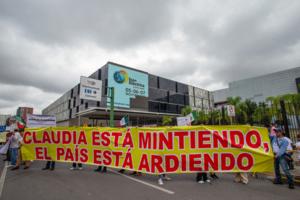
Court clash over judicial reform pushes Mexico to edge of crisis
A Supreme Court review of the controversial effort to overhaul Mexico’s judiciary is set to intensify a battle between justices and the ruling Morena party, threatening to push the nation to the brink of an institutional crisis.
On Tuesday, the top court is scheduled to weigh a draft ruling from Justice Juan Luis Gonzalez Alcantara that ...Read more
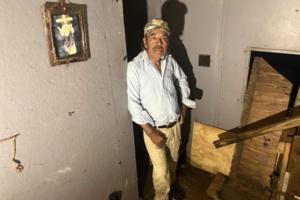
'Invisible' migrant farmworkers cope with hurricane's aftermath
LAKE PARK, Ga. — For the past month, farmworker Albertin Melo, his wife, Angelica Garcia, and their three children have taken refuge under debris.
When ferocious Hurricane Helene left their south Georgia mobile home in shambles, the family improvised new shelter by patching together remnants they found sprawled across their Lake Park ...Read more
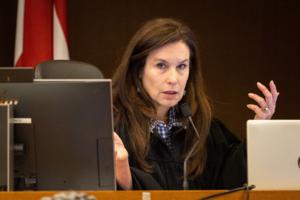
Young Thug plea leads to questions about Fani Willis' use of RICO statute
Young Thug walked out of jail on probation. The 2020 election interference case has stalled. Developments in Fulton County’s marquee racketeering cases have some legal observers questioning District Attorney Fani Willis’ reliance on Georgia’s sprawling RICO statute.
“You don’t use a sledgehammer to kill an ant,” said former DeKalb ...Read more

Influx of mobile methadone clinics bring treatment to the streets
There's a small line forming outside a plain white box truck in Seattle's Belltown neighborhood. A half-dozen folks are waiting on a gusty October morning for their turn to go inside and receive red liquid in a cup, medication that will help them get through the next 24 hours without opioids.
Or if they do use, to keep them alive.
It's life-...Read more
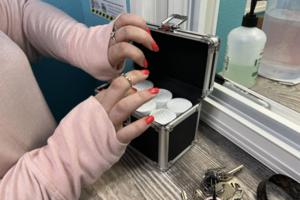
For people with opioid addiction, Medicaid 'unwinding' raises the stakes
CITRUS COUNTY, Fla. — It was hard enough for Stephanie to get methadone treatment when she moved to Florida from Indiana last year. The nearest clinic was almost an hour’s drive away and she couldn’t drive herself. But at least she didn’t have to worry about the cost of care.
As a parent with young children who was unable to find a job ...Read more
Near the eve of the election, Walz tells North Carolina: 'Win this thing for America'
Minnesota Gov. and Democratic vice presidential nominee Tim Walz had a message for voters in Gastonia Sunday evening: “Win this thing for America, North Carolina.”
Walz flew in to Charlotte Douglas International Airport around 6:30 p.m. before going to Gastonia with a group of reporters traveling by motorcade. He spoke briefly at RayNathan�...Read more
Popular Stories
- 'Invisible' migrant farmworkers cope with hurricane's aftermath
- Young Thug plea leads to questions about Fani Willis' use of RICO statute
- China’s ‘one-child policy’ left at least 1 million bereaved parents childless and alone in old age, with no one to take care of them
- Music legend Quincy Jones dead at 91
- For people with opioid addiction, Medicaid 'unwinding' raises the stakes





